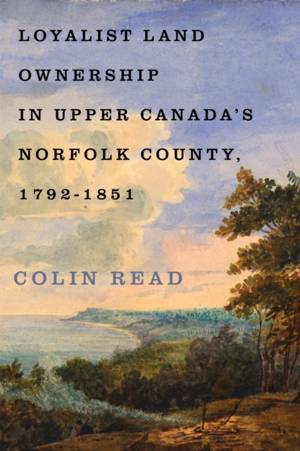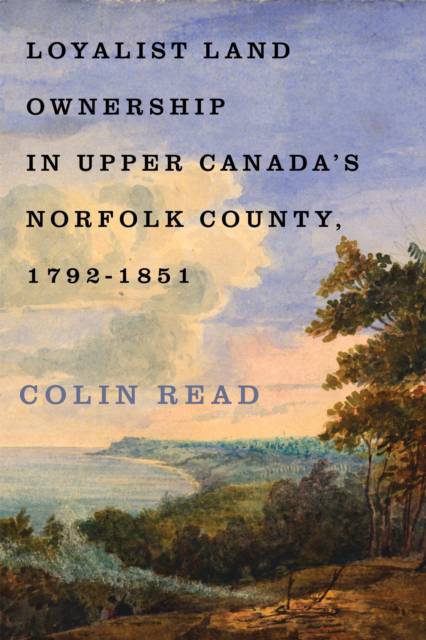
- Afhalen na 1 uur in een winkel met voorraad
- Gratis thuislevering in België vanaf € 30
- Ruim aanbod met 7 miljoen producten
- Afhalen na 1 uur in een winkel met voorraad
- Gratis thuislevering in België vanaf € 30
- Ruim aanbod met 7 miljoen producten
Zoeken
€ 151,95
+ 303 punten
Omschrijving
After the American Revolution, many Loyalists moved north, where the British colonial government awarded them generous land grants on favourable terms. The intention behind these grants was to create a landed gentry in Upper Canada that would safeguard the colony's political security and build social cohesion among its leadership. Loyalist Land Ownership in Upper Canada's Norfolk County, 1792-1851 examines the long-term landholding of Loyalists and other settlers who arrived in the county before 1812 to judge whether this social experiment succeeded. Colin Read explores the various ways that settlers acquired and transmitted land, the nature of familial land sales, and the place of women in owning land. Consulting land records and genealogical research, he finds that no landed elite endured in Upper Canada: Loyalists owned only marginally more land than non-Loyalists by 1851, and it was commonplace for latecoming settlers to eventually own land. Yet early arrival was a significant determinant of later landholding and property size - it mattered who settled first. Land was the main source of wealth in early Canada. This fine-grained study sheds light on how it was acquired, disposed of, and passed down through generations in the nineteenth century. Although a landed aristocracy was never realized, the colonial state's allocation of land to settlers laid the foundation for their social standing.
Specificaties
Betrokkenen
- Auteur(s):
- Uitgeverij:
Inhoud
- Aantal bladzijden:
- 392
- Taal:
- Engels
- Reeks:
Eigenschappen
- Productcode (EAN):
- 9780228026112
- Verschijningsdatum:
- 12/08/2025
- Uitvoering:
- Hardcover
- Formaat:
- Genaaid
- Afmetingen:
- 152 mm x 229 mm
- Gewicht:
- 625 g

Alleen bij Standaard Boekhandel
+ 303 punten op je klantenkaart van Standaard Boekhandel
Beoordelingen
We publiceren alleen reviews die voldoen aan de voorwaarden voor reviews. Bekijk onze voorwaarden voor reviews.








